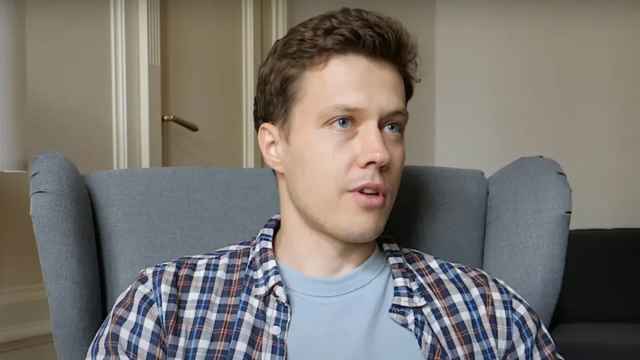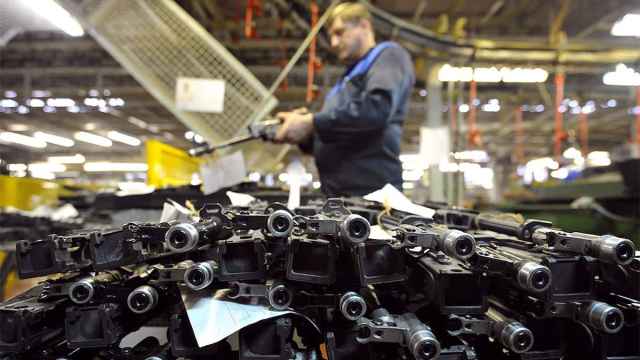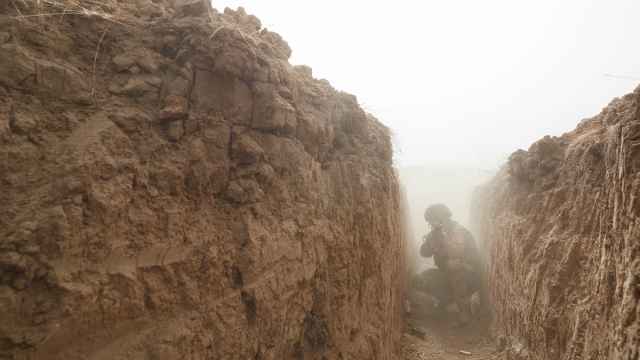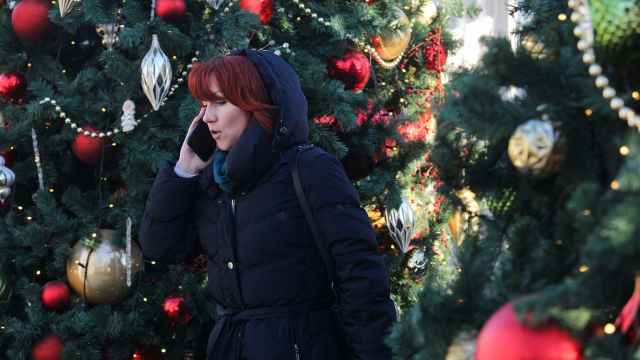The Central Bank left its key policy rate unchanged for the 14th month in a row Friday, underscoring the painful dilemma faced by policymakers grappling with slowing growth and rising inflation.
The bank held its benchmark one-week minimum auction repo rate at 5.5 percent, reflecting concerns about above-target inflation.
It also warned that growth would stay low in the medium term — a day after the government said the economy would lag global growth over the next two decades, acknowledging that ambitious targets set by President Vladimir Putin were unlikely to be met.
Russia's economy is officially forecast to expand 1.8 percent this year — about half 2012's rate — and is likely to be even lower in reality.
In a statement, the bank warned that the economic malaise was unlikely to end anytime soon.
"Given subdued investment activity and a sluggish recovery in external demand, the Bank of Russia expects the economic growth rate to remain low in the medium term," it said.
The gloomy prognosis conflicts with the view of critics in the government and business, who have been calling for the bank to cut interest rates to stimulate growth.
But under new head Elvira Nabiullina, the Central Bank has made clear that beating inflation remains its main concern, arguing that it can do little to boost the sickly economy.
Inflation rose to 6.3 percent last month, threatening the bank's target of lowering it to 5 to 6 percent by year-end.
"The Central Bank is in a difficult position because on the one hand they have growth still slowing, the economy is still struggling, but on the other hand they have inflation still above the target," said Liza Ermolenko, economist at Capital Economics in London.
"And the Central Bank has repeatedly said that by cutting interest rates they are not going to solve all the problems of the Russian economy."
"The lowering of the long-term growth forecasts … corresponds to the estimate of potential growth of gross domestic product, used by the Central Bank in many of its models," said Alexei Pogorelov, economist at Credit Suisse.
Nabiullina has estimated the potential annual growth rate at 2 to 2.5 percent — half the rate that Putin and his government had hoped to achieve in the medium term, and a fraction of the 7 percent rate Russia experienced before the 2008 to 2009 slump.
Declining growth potential helps to explain why, despite the sharp slowdown over recent months, inflation remains relatively high, coinciding with low unemployment and little spare capacity to boost output.
The Central Bank said a jump in food prices that has pushed up the headline inflation rate was temporary, and that it expected the rate of consumer price growth to slow in 2014.
But the bank also reiterated its concerns about high inflation expectations among the population, saying that these had to fall more markedly for the bank to achieve its medium-term inflation goals.
As in previous months, the bank said that the level of output was somewhat below its potential. But it did not see the size of this output gap increasing, implying that the growth of the economy is not significantly lagging its potential.
The bank is nevertheless expected to cut interest rates next year, as inflation falls, a trend the bank said would resume once the temporary impact of high food prices passes.
A Message from The Moscow Times:
Dear readers,
We are facing unprecedented challenges. Russia's Prosecutor General's Office has designated The Moscow Times as an "undesirable" organization, criminalizing our work and putting our staff at risk of prosecution. This follows our earlier unjust labeling as a "foreign agent."
These actions are direct attempts to silence independent journalism in Russia. The authorities claim our work "discredits the decisions of the Russian leadership." We see things differently: we strive to provide accurate, unbiased reporting on Russia.
We, the journalists of The Moscow Times, refuse to be silenced. But to continue our work, we need your help.
Your support, no matter how small, makes a world of difference. If you can, please support us monthly starting from just $2. It's quick to set up, and every contribution makes a significant impact.
By supporting The Moscow Times, you're defending open, independent journalism in the face of repression. Thank you for standing with us.
Remind me later.





